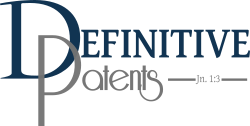In response to administration mandates, discussion on the unofficial examiner Subreddit indicates that the USPTO has recently implemented significant changes to their examination procedures, including the practical elimination of mentorship resources for junior examiners. These changes, combined with mounting technical failures, and coupled with the Secretary of Commerce’s mandate to reduce the “unacceptable backlog” of patent applications, are likely to have several important impacts on patent prosecution:
Expected Impacts on Patent Examination
- Increased likelihood of less thoroughly researched rejections as examiners face pressure to process applications in a minimized time margin
- Reduced examiner availability for interviews and applicant discussions due to time constraints
- Greater pressure on examiners to meet quantity quotas at the cost of thorough or well-explained actions
- Increased reliance on AI tools for prior art searching and office action preparation, including less critical review of AI outputs as time pressures mount due to increased demands to reduce backlog and reduced examiner workforce
Heightened Risks for Patent Applicants
With reduced examiner support and increased pressure to reduce backlogs, patent applicants face greater challenges in securing meaningful patent protection. The signposts we are seeing tend to point towards favoring higher-speed, lower-quality examination. For the many examiners who whole-heartedly support American innovation, this may lead to either reduced scrutiny -or- suggesting unnecessarily narrow claim scope to quickly achieve allowance. For examiners who absolutely prioritize ensuring that no ‘bad patents’ are accidentally granted, these pressures could very likely lead to increased rejections and avoidance of grappling with nuanced technical improvements or legal arguments.
This environment makes experienced patent practitioners more crucial than ever.
The Value of Experienced Patent Representation
Experienced patent practitioners can help inventors mitigate these challenges by:
- Performing thorough prior art searches before filing, anticipating and preemptively engineering the claims and application to avoid unnecessary rejections to achieve high-quality issued patents
- Efficiently navigating examiner interviews to maximize the effectiveness of those interviews
- Crafting responses tightly focused on your key improvements while avoiding extraneous side issues, in order to advance prosecution despite abbreviated examiner attention
- Carefully reviewing and challenging low-quality rejections when appropriate, including by increased use of advanced appeal tactics to reduce overall cost of prosecution
Challenging, uncertain times are also historically times of great opportunity — if you are struggling with examination difficulties, or are seeking to protect your innovation, learn more about how we can help protect your innovations.

Leave a Reply